
The ASP.NET Web Forms Spreadsheet control is a Microsoft Excel-like control for the web that allows you to create, view, edit and format Microsoft Excel files. It ships with a built-in calculation engine with support for more than 200 of the most widely used formulas. Its functionalities include editing, data binding, filtering, formulas, charts, formatting, data validation, pivot tables, printing, importing and exporting.

Existing Excel worksheets can be imported into the Spreadsheet control and edited by users. This control supports exporting spreadsheets as .xls, .xlsx, and comma-delimited value files.

Load and manipulate Excel workbooks with a large amount of data using row virtualization and any number of worksheets in less time using the sheet-on-demand option.

The ASP.NET Web Forms Spreadsheet control provides a smooth scrolling experience even with many cells in a view.

In the Spreadsheet control, data editing comes with the ability to add, edit, and remove formulas or values in a cell. Users can also select the range reference directly using the mouse or keyboard while entering formulas, like in Excel.

Validate the edited values based on the data validation rules defined for a cell or range of cells. Data validations can be applied with operators and drop-down lists.

Undo and redo changes made in an Excel workbook. You can customize the limit of undo and redo operations you can perform.
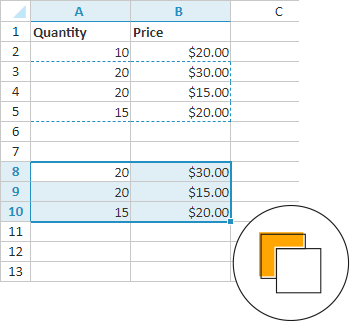
Clipboard operations with Excel-like paste options enable users to paste values or formulas with or without formatting in a spreadsheet.

The drag-fill feature allows users to easily fill or copy a series or pattern of values and formats into neighboring cells in any direction.
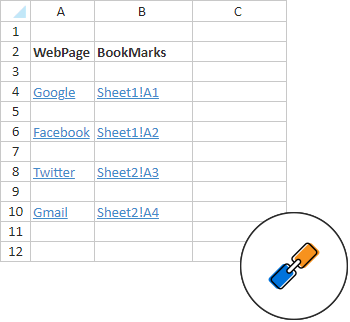
There’s built-in support for hyperlinks and bookmarks. You can navigate through bookmarks to a specific cell or range of cells in a workbook.
A wide range of formulas is available with cross-sheet references and named ranges support.

The built-in calculation engine is preloaded with more than 200 Excel-compatible functions covering a broad range of business scenarios.

Values are automatically recalculated when a dependent cell is edited.

Named ranges can be used in formulas as substitutes for cell references. The built-in name manager allows you to add, edit, and delete names.
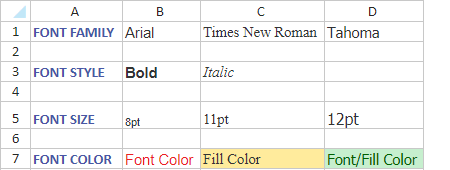
Import and modify various font formatting options like font size, font family, font styles, font color, and fill color.
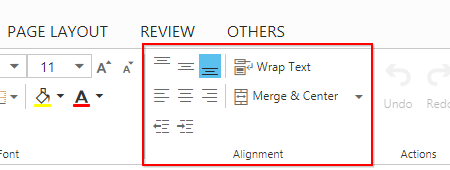
Import and modify various horizontal and vertical alignments of text, merged cells, and wrap settings from Excel.
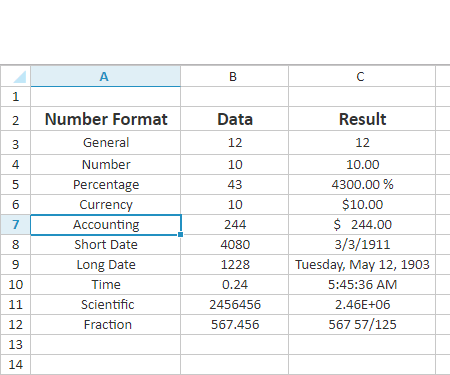
Import and modify number formats such as currency, percentage, short date, long date, time, fraction, and scientific number, similar to Excel.
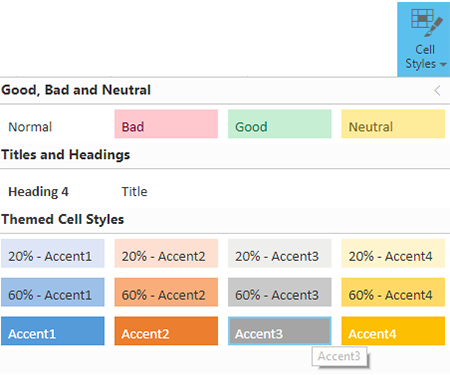
Import table formats and predefined cell styles from Excel. You can also format a range as a table and define cell styles at runtime.
In ASP.NET Web Forms Spreadsheet, Conditional formatting helps you visually explore and analyze data, detect critical issues, and identify patterns and trends. Format the appearance of cells based on their value or the values of any other cells.
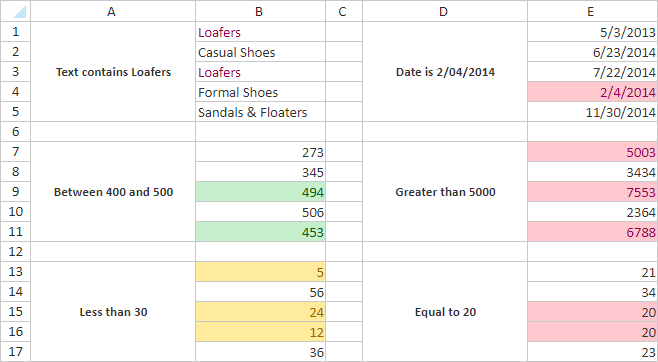
Analyze data with automatic filtering and sorting. The Spreadsheet control provides support for filtering specific data from the spreadsheet and sorting columns by ascending or descending order.
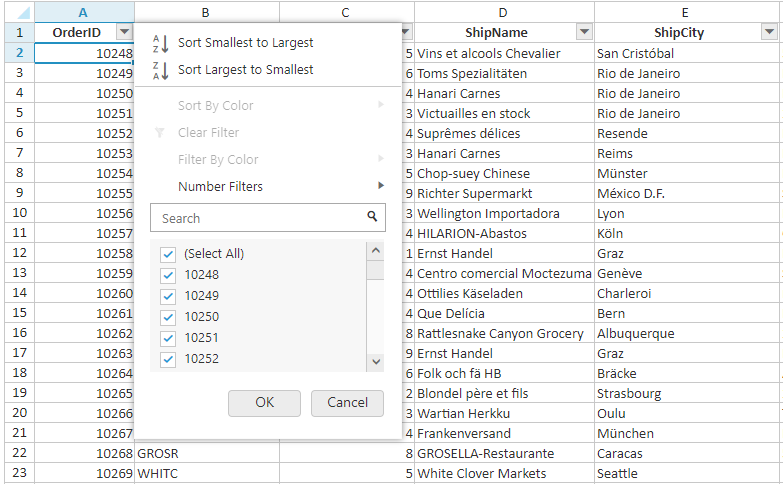
Import charts from Excel that can be defined at runtime. This helps visually enhance the represented data.

Import sparklines from excel to visually represent data in a row.

Summarize and analyze large amounts of data with pivot table support.
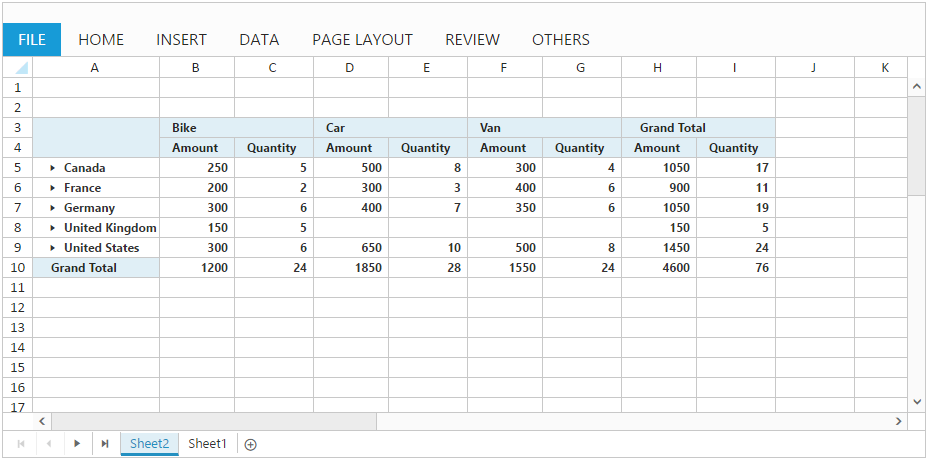
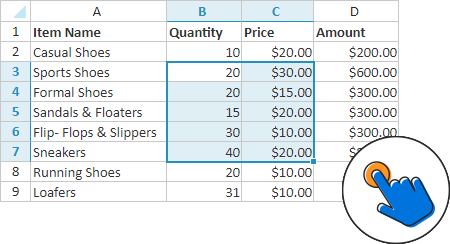
The ASP.NET Web Forms Spreadsheet control is touch-optimized for all user interactions, similar to Excel.
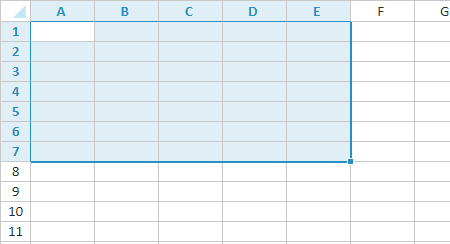
Select a range of cells, rows, columns, and tables. The Spreadsheet control also supports all keyboard interactions with selections.
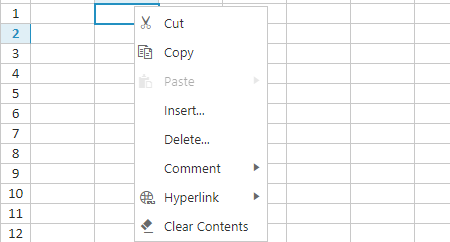
There’s built-in support for cell and tab context menus. You can add custom context menu items.

Localize all static text in the ribbon and built-in dialogs of a spreadsheet to any supported language.
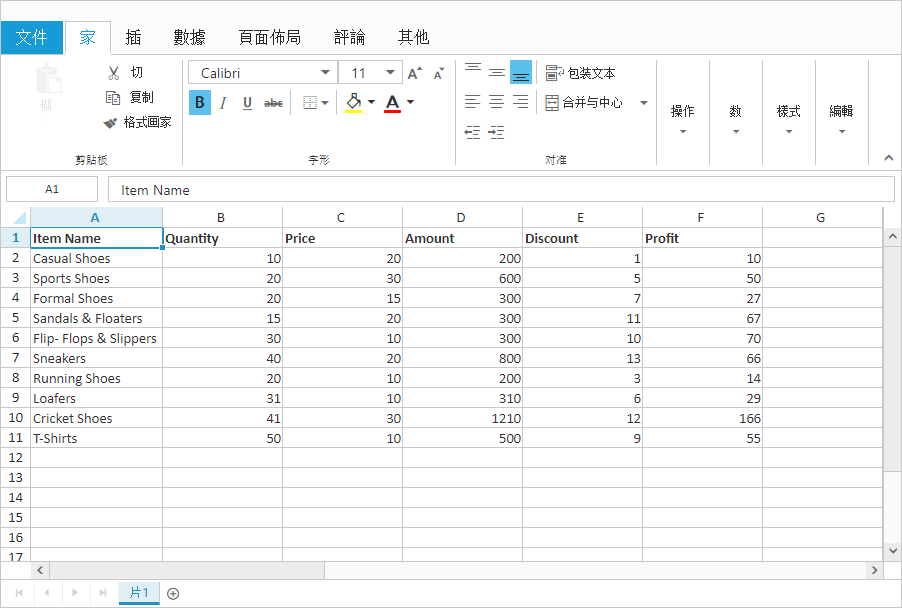
 Documentation
Documentation
Greatness—it’s one thing to say you have it, but it means more when others recognize it. Syncfusion® is proud to hold the following industry awards.